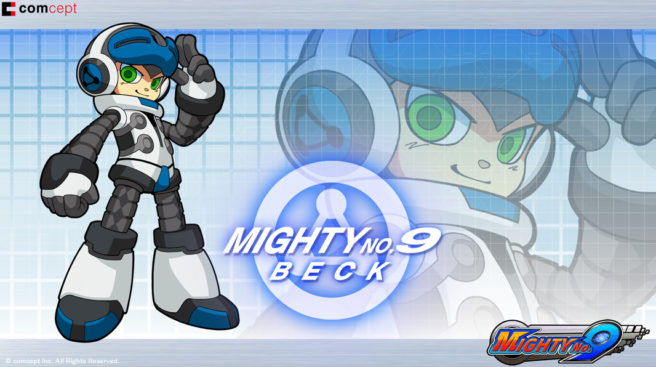Keiji Inafune: “I own all the problems” associated with Mighty No. 9
We previously mentioned that a launch stream was held for Mighty No. 9 today. Creator Keiji Inafune was naturally in attendance, as was translator Ben Judd.
Kotaku has since picked out a few notable quotes from the stream. One of the big takeaways was Inafune essentially taking responsibility for any problems associated with the game while also commenting on topics like the Kickstarter budget, the difficulty in making a ton of versions at once, and more.
Head past the break for a recap of Inafune’s comments. Note that Judd mixed in the translations with some of his own commentary, which Kotaku tries to point out.
On players being upset and wanting to vent at the developers…
Inafune-san said “You know, I want to word this in a way to explain some of the issues that come with trying to make a game of this size on different platforms.” He’s like “I’m kind of loath to say this because it’s going to sound like an excuse and I don’t want to make any excuses. I own all the problems that came with this game and if you want to hurl insults at me, it’s totally my fault. I’m the key creator. I will own that responsibility.”
On how Kickstarter doesn’t actually represent the whole budget…
When you do the Kickstarter campaign, a lot of people don’t realize this, they see the big number—we’ve talked about this before—but they see a number like four million and they expect that’s the actual budget. And on every single website and every single user forum, that was the number that people would say…heck, people are having a little fun with us and mentioning it in the chat, as well. The reality is that it’s 60% of that.
[…]
At the end of the day, at the end of a Kickstarter name, don’t look at the final number. Imagine that being 60%. But in order to increase the content in a wide variety of ways—stretch goals are largely going to be based around new platforms, etc— you really need to be able to estimate the amount of financial burden that’s going to occur on the project. Even for someone like him [Inafune], who’s worked on so many different games, it’s a really hard thing to estimate. It’s something to keep in mind with Kickstarters.
On why making 10 versions of the game at once was a huge mistake…
He said “In my many years at Capcom, and Capcom was known for their multi-platform strategy. But never did they ever do 10 SKUs all at the same time, 10 different versions all for one title.” Traditionally, this is true—I know, we worked with a lot of different porting houses—usually you have the base game and work on the port after the game was done. In this case, it was do the base game and do the port all at the same time. it ended up being a huge amount of work, more than they actually estimated. Definitely, when they looked at the project, they were wrong about a lot of things. They underestimated how much time, work was going to be necessary. All of those things create a huge amount of pressure.
On whether Inafune’s attention was devoted enough to Mighty No. 9’s quality…
I’ve [Ben Judd] seen a lot of different comments that suggested Inafune-san was only focused on being a business man and taking the IP and making anime or manga or branching off into a lot of different directions. To your average everyday person, it’s going to seem that way. But the reality is, during production, the key creative pieces really happen for the first 70% and then beyond that, it’s all about doing porting and bug testing. I promise you Inafune-san’s time is best spent focused on taking this IP in new directions. Again, as I said, to be an independent studio and get a chance to own your IP, it just doesn’t happen. It does bring in other opportunities, which is great. I guarantee you [that] you want your independent creators and developers to have their IP, you want them to be able to take them in different directions. It gives you more choices as gamers. I 100% stand by this sentiment.
On the value of hearing kind comments from players…
So game development is a huge challenge, it’s emotionally trying. […] It’s the kindness, it’s the supportive comments that really keep people going. Because at the end of the day, we’re just people and we just want to make a good game. It’s that sort of kindness he really appreciates. I [Ben Judd] know that when I made a game, as well, and I would go home and cry myself to sleep because it was so mentally…just destroying me. Having those comments were great.
